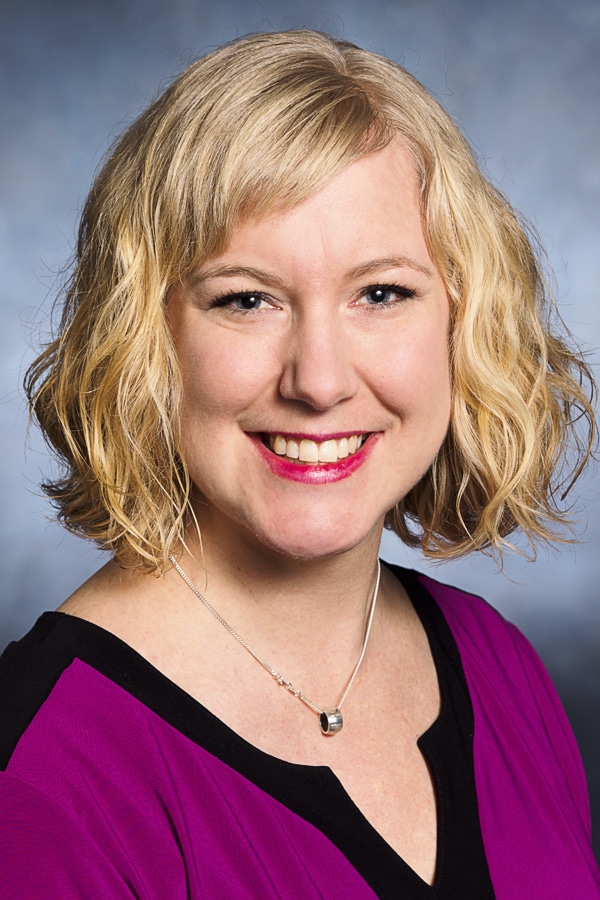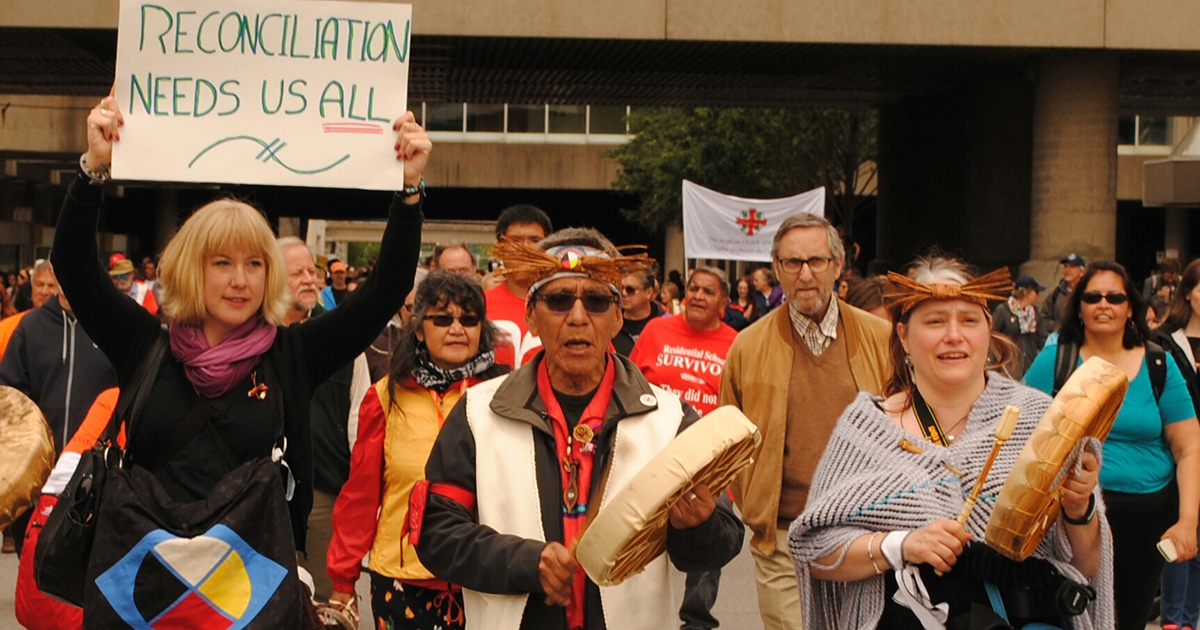Taking another step towards healing and reconciliation with Indigenous peoples, the General Synod of the Anglican Church of Canada has appointed Ms. Melanie Delva as its reconciliation animator, effective June 1, 2017.
Ms. Delva currently serves as Archivist for the Diocese of New Westminster and the Provincial Synod of B.C. and Yukon, a position she has held for 12 years. During this time, she was part of the pilot project for document collection as part of the Truth and Reconciliation Commission of Canada (TRC) and spent eight years working with survivors of the residential school system.

Identifying as a first-generation settler of Belgian descent living on the traditional, unceded territories of the Musqueam, Squamish, and Tsleil-Waututh First Nations, Delva grew up on Treaty 4 territory of the Tootinaowaziibeeng First Nation and the Métis Nation.
She first became heavily involved with reconciliation initiatives during her time with the TRC pilot project, and has presented papers on the TRC, reconciliation, the Calls to Action, and the United Nations Declaration on the Rights of Indigenous People (UNDRIP) in Canada, the United States, and Europe, as well as preaching in parishes in both Canada and the U.S.
As a result of her work with the TRC, in 2015 Delva was spiritually adopted into the Grizzly Clan of the Lytton Band of the Nlaka’pamux First Nation. She learned much from hearing the experience of her adoptive father Coyote Terry Aleck, the first residential school survivor to take legal action against the Anglican Church of Canada, whom she later accompanied to the TRC closing ceremonies in Ottawa.
“The TRC and my new family in the Grizzly clan have shaped so much of my learning around Indigenous culture, around systems that are perpetuated post-residential school closures, and show me in really painfully obvious ways how these systems still work against Indigenous people,” Delva said.
In her new role as reconciliation animator, Delva will be responsible for forming and equipping a national team to “encourage and sustain engagement in the work of reconciliation between Indigenous and non-Indigenous persona and communities, both within the Anglican Church of Canada and in Canadian society”.
Specifically, she will guide the overall strategy of the Anglican Church of Canada for implementing the TRC Calls to Action, incorporating the UNDRIP into the life of the church, responding to calls for justice from Indigenous leadership both inside and outside the church, and recognizing and acting on opportunities to act in support of reconciliation at the local, diocesan, and national levels.
Delva describes her guiding principle as “reconciliation as a spiritual practice” that must be “built into who we are”, similar to the incorporation of prayer and study into daily life.
“I believe that reconciliation needs to become a spiritual practice, so that it’s no longer this thing that we do in initiatives or at a march—it can manifest that way, and probably would—but that it becomes part of our day-to-day thinking and the way that we approach everything that we do in our work and in our social time,” Delva said.
Archbishop Fred Hiltz, Primate of the Anglican Church of Canada, said Delva’s view of reconciliation as a spiritual practice rooted in the gospel was “very encouraging”.
The Primate said that Delva would work well within the church while helping build bridges with other organizations equally committed to reconciliation arising from the legacy of the residential schools, such as the Assembly of First Nations, the Inuit Tapiriit Kanatami, and the National Métis Council.
“If our church is going to get on with responding with integrity to the Calls to Action from the TRC, and we’re going to get on with, as I said last year, letting our ‘yes’ be yes when it comes to the UN Declaration on the Rights of Indigenous People, then we need this kind of a position,” Archbishop Hiltz said. “And I think it’s a movement of the spirit that we actually have felt called to create and provide the funding for this ministry.”
As reconciliation animator, Delva will work from Vancouver, spending at least five days per month in Toronto.
Her initial plans include reviewing the Calls to Action and the UN Declaration, “seeing where we’re at right now, what’s happening on the ground and what’s happening at different levels of the church—and then listening a lot to Indigenous people in Canada about where they see gaps, where we can do better, and going from there.”
Interested in keeping up-to-date on news, opinion, events and resources from the Anglican Church of Canada? Sign up for our email alerts .

